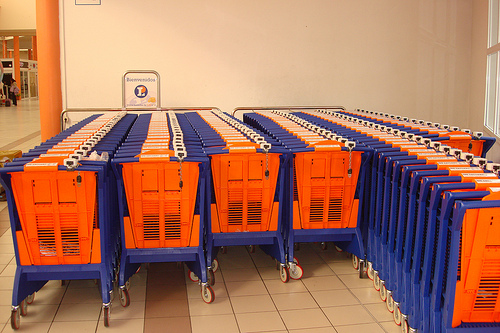VConnect was a search engine for Nigerian small businesses, until recently.
If you visit VConnect today, you won’t find the lone textbox asking you to “Search for a business”. In its place on a website that now looks like any other 200 odd e-commerce websites in Nigeria is a picture grid of products on sale. While we weren’t looking, Vconnect, which for its four years of business was a listing of Nigerian small businesses, became a marketplace.
Even I didn’t notice until Oo Nwoye posted this to Twitter.
WOAH!!!! This is surely the biggest pivot in the Nigerian startup scene @vconnect has gone full ecommerce! pic.twitter.com/stLITNtpms
— Oo Nwoye (@OoTheNigerian) October 5, 2015
And he’s probably right. We haven’t seen a shift on this scale. Even DealDey that’s obviously not the same company it was when it started out in 2010 has adopted a more gradual, evolutionary approach, not this revolutionary, all out pivot.
Dealdey has been subtly tweaking its business model. First it stopped with the Groupon-style daily deals, and now its launched a couple sister websites, Promohub and Lyf.ng. Promohub which lists ongoing promotions from local businesses. Lyf.ng on the other hand appears to mirror Vconnect’s business directory business…former business at this point…to a large degree.
If Vconnect has truly moved away from being a local business search engine, then it’s a rather curious case of dancing chairs that is playing out here. Lfy.ng is coming into a space that VConnect is exiting, and VConnect is jumping into a playground where Jumia marketplace, Konga sellers HQ and other turnkey e-commerce products are trying to conquer.
One might argue that VConnect is hedging its business in the face of the coming onslaught from DealDey’s Lyf.ng — a reactionary move. But another might counter with the observation that VConnect itself has been slowly evolving since earlier in the year. Since February, VConnect began to position itself as a marketplace, even if subliminally. It changed its tagline from “information whenever, wherever” to “find.buy.sell”, and also gave its website a complete makeover.
At the time, this wasn’t obvious; that they were moving from merely providing information on businesses to enabling direct purchases. Now it is.
And the company has also come right out to say it: “We are no longer a local search engine but now a complete consortia of sellers, stores, products, offers and unmatched quality. Gaining serious ground in having over a million plus businesses, now we endeavour to power the SME’s even more by listing their products and promoting all of your favourite stores just a click away,” the company said.
VConnect’s one million businesses strong database is nothing to shake a stick at and Vconnect’s insight into the space cannot be denied – it’s been listing local businesses and recording consumer sentiment for the past four years. By pivoting in this manner, it is coming in at a more advanced level in the curve and cutting in ahead of existing marketplaces. The fraction of the one million businesses that have actually turned merchants will likely be minute, but if you aren’t fussy, Vconnect is effectively the largest e-commerce marketplace in Nigeria right now, and perhaps Africa.
Photo Credit: Polycart via Compfight cc
Image via: Vconnect

















